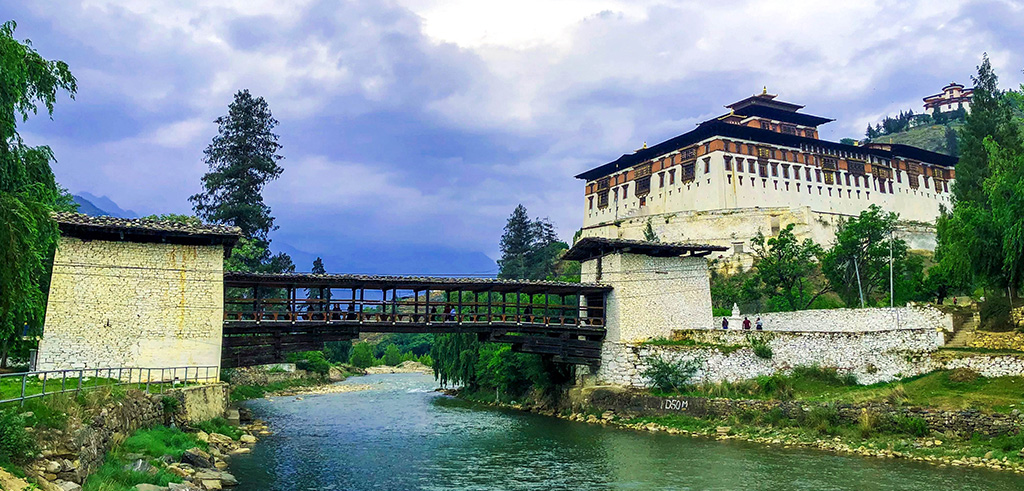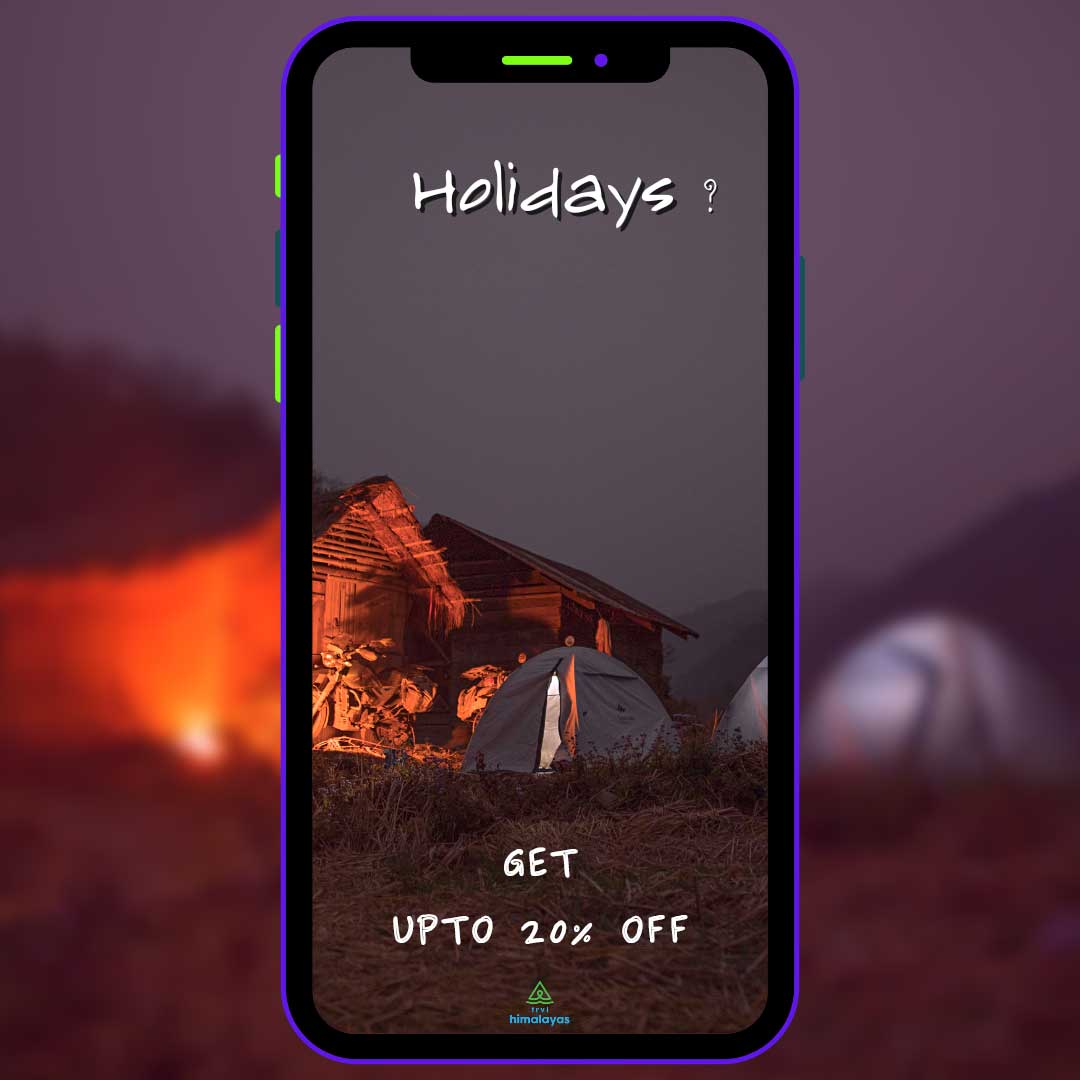






[ARRIVAL] Arrive at Paro International Airport, Our tour guide will meet you and take you to your hotel. Go for a stroll around Paro town and visit the impressive local Sightseeing. Paro Valley - The beautiful valley is home to many of Bhutan's old monasteries and temples. The valley is also home to Mount Chomolhari (7,300 meters) situated at the northern end of the valley whose glacier water forms the Pachu flowing through the valley. Kyichu Lhakhang – One of the oldest and most sacred temples in the kingdom, dating back to the 7th century. Ta Dzong – Former WatchTower which now houses the National Museum. Rinpung Dzong – This houses the monastic school and the office of the civil administration and walks down passing close by crossing the Bhutanese typical wooden roofed bridge to Paro town. Overnight hotel in Paro.
[Day trip to Tiger nest] After breakfast, drive for half an hour and start the hike. The trail is along an ancient path marked by river-powered prayer wheels. As you reach Taktsang you will be struck by the architectural wonder of this most pious Buddhist shrine in Bhutan. Perched some 1000m, 3000ft on a cliff overlooking the valley; it would justifiably qualify as one of Bhutan’s wonders. The Tiger Nest was caught by fire twice and it has been rebuilt to its original glory. It is said that the legendary Buddhist saint, Guru Padmasambhava, flew from Tibet on the back of a tigress to tame five demons, who were opposing the spread of Buddhism in Bhutan in 746 A.D. Descend back to Ramthangka. If the time permits, drive further north to visit another symbolic structure, which is now under reconstruction. Drugyel Dzong, or “Castle of the Victorious Drukpa,” which was also built by the Shabdrung to commemorate Bhutan’s victory over the Tibetans in the 16th centuries. Hot Stone Bath - You can go for a locally owned Hot Stone Bath, which can take two people at one time. This bath will help loosen your joints, release muscle tension and invoke a profound sense of relaxation. The cost is approximately INR1600 per person.
[Paro to Thimphu]
Buddha Point/ Kuensel Phodrang – Is the largest Buddha statue in the
country, from there you can get a good view of the Thimphu valley.
Memorial Chorten – Built in the year 1974 in the memory of our third king of Bhutan, His Majesty Jigme Dorji Wangchuck.
Tashichho Dzong – The “fortress of the glorious religion” was initially erected in 1641 and rebuilt by King Jigme
Dorji Wangchuck in the 1960s. Tashichho Dzong houses some ministries, His Majesty’s secretariat,
and the central monk body.
Motithang Takin Preserve – Houses the rare national animal of Bhutan.
Takin is listed by international conservation agencies as a vulnerable species and it is a rare animal
found only in Bhutan, Nepal and Burma. Overnight at hotel
[Thimphu – Punakha] After breakfast, drive to Punakha – approximately 3-hours drive through picturesque valleys and mountain slopes dotted with typical Bhutanese villages. From the Dochula pass, at over 10,000ft, vast panoramic views of the high snowcapped peaks of the Bhutanese Himalaya can be enjoyed on a clear day. Continue to drive down into the Punakha valley. On the way, visit Chhimi Lhakhang – This was founded in 15 Century by Lama Dukpa Kinley also known as a divine mad man. It is a half-hour walk across a local village and rice field. After lunch visits Punakha Dzong – built in 1637 by Zhabdrung. Overnight at hotel in Punakha.
[Day trip to Phobjikha Valley / Halt in Punakha Phobjikha Valley] Well known as the winter home of the Black-necked Crane (Grus Nigricollis). Bhutan is home to around six hundred black-necked cranes with Phobjikha being one of the popular places that the birds migrate to in the winter months from the Tibetan plateau. The elegant and shy birds can be observed from early November to the end of March. Overlooking the Phobjikha valley is the Gangtey Goempa. This is an old monastery that dates back to17th century. Black-Necked Crane Information Centre - The valley of Phobjikha is known as the winter home of the Black-necked Crane (Grus Nigricollis). Bhutan is home to around six hundred black-necked cranes with Phobjikha being one of the popular places that the birds migrate to in the winter months from the Tibetan plateau. The elegant and shy birds can be observed from early November to the end of March. Black-Necked Crane Information Centre, which has informative displays about the cranes and the valley surroundings. Night halt in Punakha Or Halt in Punakha. Your guide will advise what to do in Punakha.
[Punakha to Thimphu Institute of Zorig Chusum] Commonly known as the Painting School, or the School of the Thirteen Arts, the institute offers you a glimpse of novices learning 13 traditional arts and crafts of Bhutan. It is a hands-on trip for you. Enjoy a few moments with future artists of the country. Centenary Farmers' Market - Most of the Thimphu population congregate on the banks of Wangchhu River where the weekend market is held. Villagers from the Valley and other nearby places come to sell their wide range of agriculture products in the market. The market is by far the largest domestic market in Bhutan. A visit to the market provides great photo opportunities, as well as the chance to mingle with local people and perhaps buy souvenirs. Simtokha Dzong - Five miles from Thimphu, on a lofty ridge, stroll through the very first dzong, built-in 1627 by Zhabdrung Ngawang Namgyal. The Institute for Language and Cultural Studies is located here now. Enthral yourself with the most noteworthy artistic feature in front of over 300 finely worked slate carvings behind the prayer wheels in the courtyard. After lunch transfer to Phuentsholing. Overnight in Thimphu hotel.
[Departure] Departure After breakfast, drive to Phuentsholing border town. Our representative in Bhutan will see off and bid farewell.
